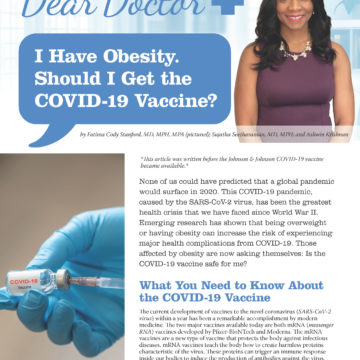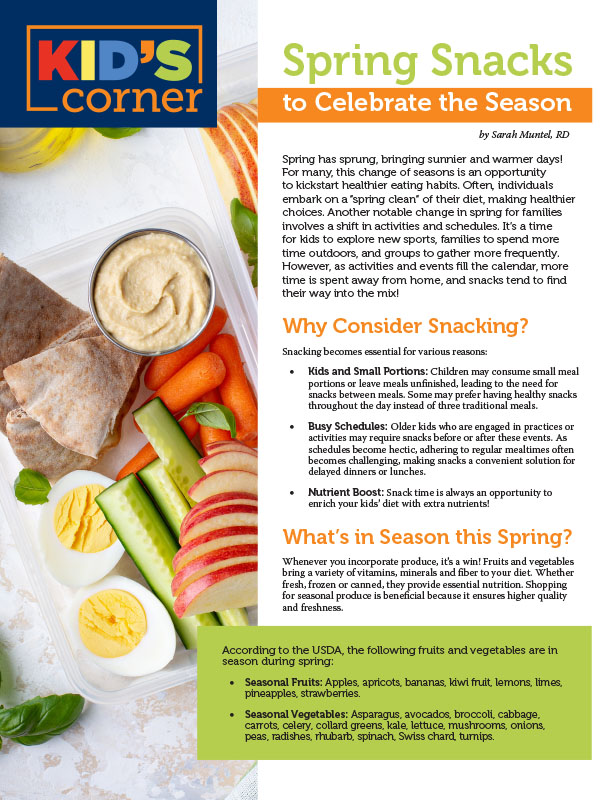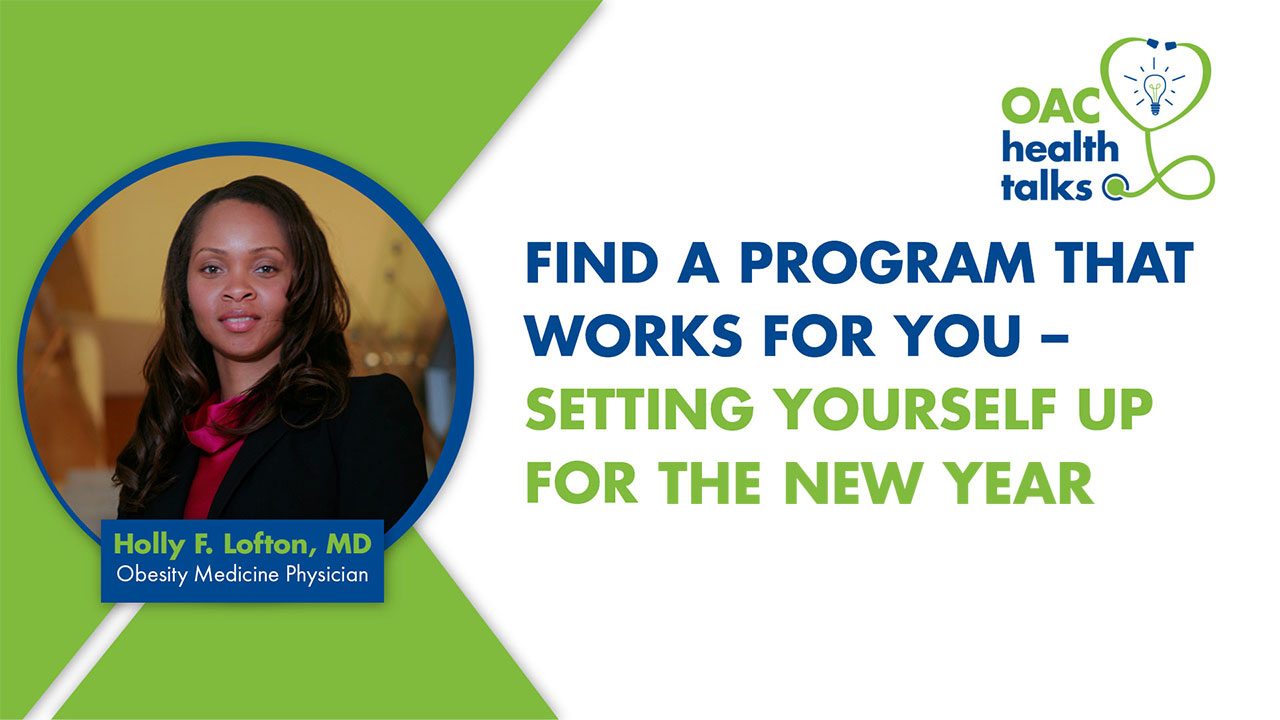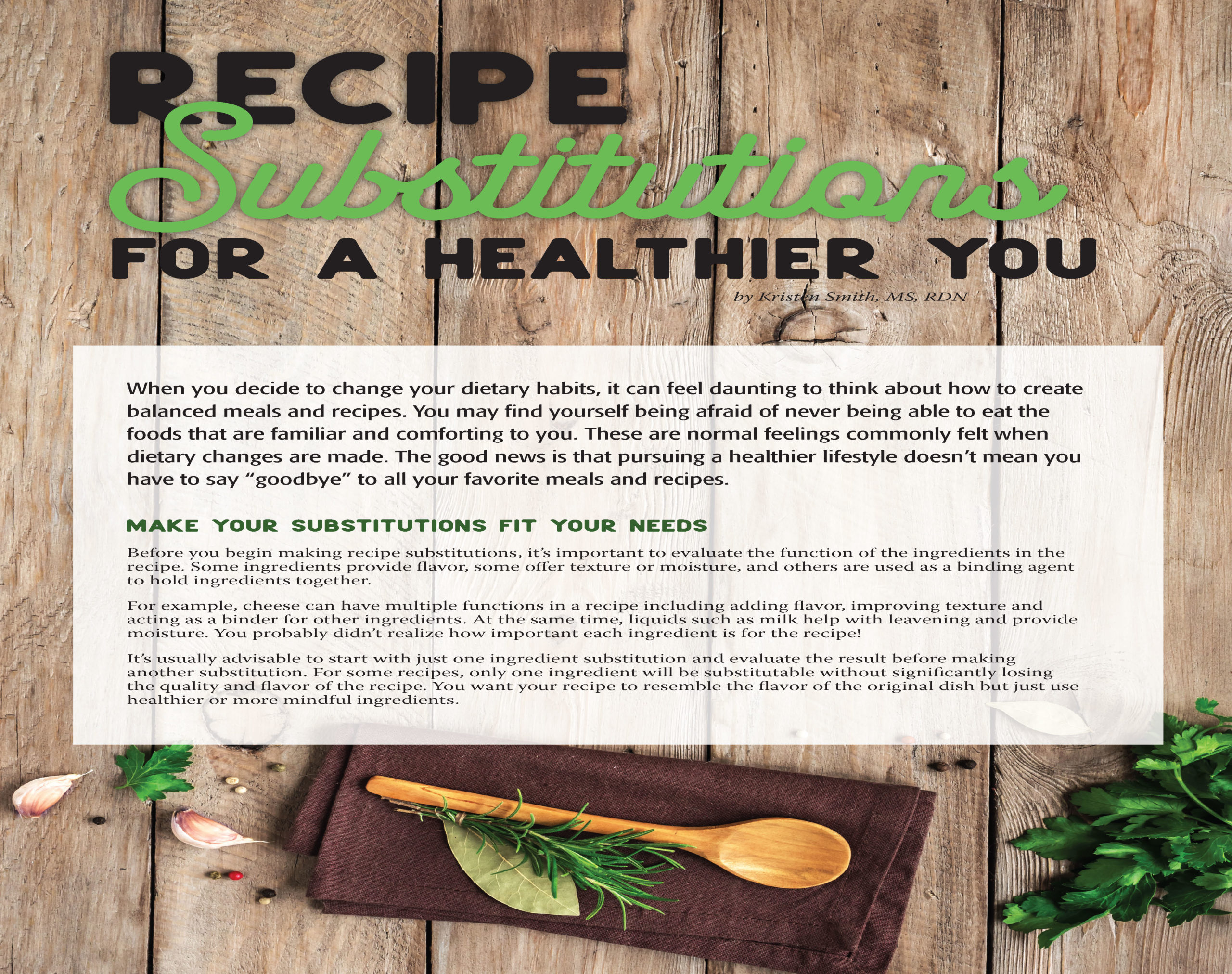Trading in Fad Diets for Sustainable Eating

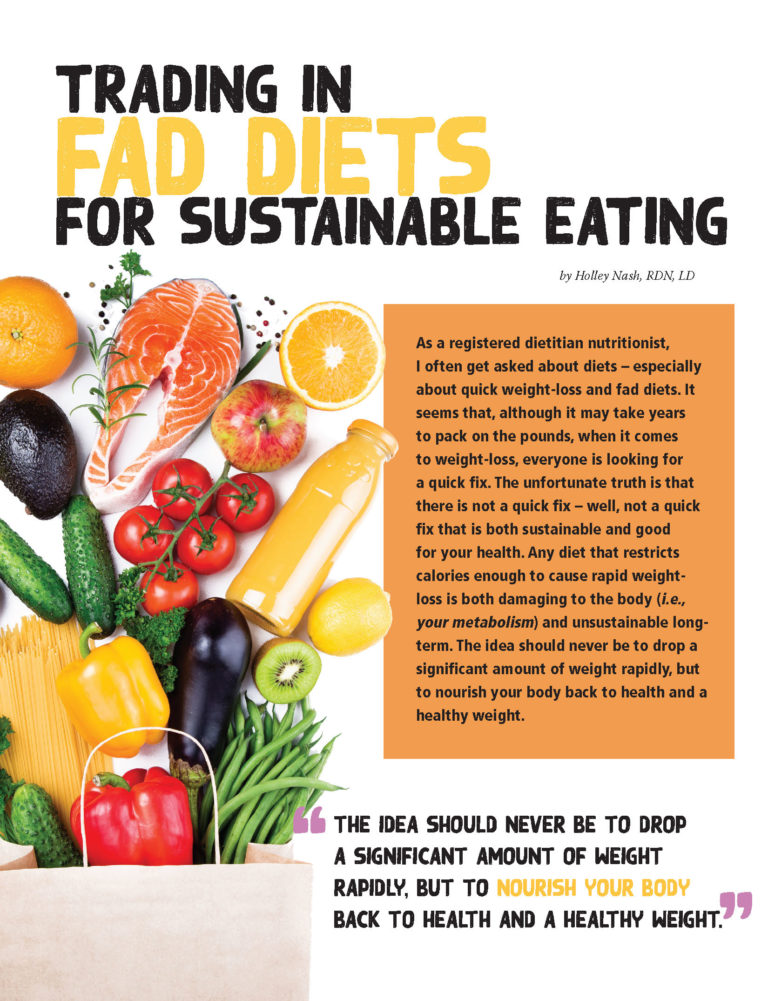
by Holley Nash, RDN, LD
Spring 2021
As a registered dietitian nutritionist, I often get asked about diets – especially about quick weight-loss and fad diets. It seems that, although it may take years to pack on the pounds, when it comes to weight-loss, everyone is looking for a quick fix. The unfortunate truth is that there is not a quick fix – well, not a quick fix that is both sustainable and good for your health. Any diet that restricts calories enough to cause rapid weight-loss is both damaging to the body (i.e., your metabolism) and unsustainable long-term. The idea should never be to drop a significant amount of weight rapidly, but to nourish your body back to health and a healthy weight.
What Should I Eat?
While there are many aspects that can contribute to obesity or weight gain (medications, genetics, etc.), changing the way you eat can help heal your metabolism and make for healthy weight-loss or weight maintenance.
Humans evolved mainly eating plant foods. Consequently, the further the human diet strays from eating whole foods, the worse our health becomes. Transitioning to an all or mostly plant-based diet can improve your health and reverse some of the chronic diseases associated with obesity such as:
- Diabetes
- Hypertension
- Stroke
- High blood pressure
- Low blood glucose levels
- Low triglycerides
- LDL (bad) cholesterol
Does this mean that you have to become vegan to be healthy? Absolutely not. The goal is to move from a dietary pattern where animal products and processed foods are the main components toward a more healthful and balanced dietary pattern focused on eating mainly whole, unprocessed foods.
Eating more whole plant foods and non-processed animal products allows you to nourish your body. This eating style is often referred to as a “whole foods, plant-based diet” (WFPB), and there are a few variants to help you find just the right one for your lifestyle and health goals.
Let’s explore some of the most popular and well-known whole food and plant-based diets that can reverse chronic diseases and improve health.
Dietary Approaches to Stop Hypertension (the DASH diet):
The DASH diet encourages people to eat minimally-processed fresh foods while avoiding red meat, full-fat dairy, processed foods and sweets. This dietary pattern includes eating at least five servings per day of fruit and vegetables, as well as eating legumes and beans, some lean meat and low-fat dairy, whole grains, nuts and seeds.
It also requires that participants cap their daily sodium intake at 2300 mg per day, with the goal being to decrease sodium intake to 1500 mg per day.
The Mediterranean Diet:
The Mediterranean diet can more accurately be described as an eating pattern than a diet. It also encourages people to focus on eating mostly fruit, vegetables, whole grains, nuts, seeds, beans, pulse vegetables and olive oil. Red meat and sweets should be avoided, and poultry, eggs and dairy consumed in moderation. For those who choose to enjoy adult beverages, there is even room for the occasional glass of red wine.
The Volumetrics Diet:
The Volumetrics Diet divides food into four different categories based on its energy density. The goal is to lower your intake of energy-dense foods (think French fries and chocolate cake) and to increase your intake of low-density foods (think fruits, vegetables and whole grains). By doing so, you will automatically increase the amount of nutrients you consume and lower the calories you take in. Further, by focusing your diet on consuming mostly low-density foods, you will be able to eat more and be less hungry.
Vegetarian:
A vegetarian is someone who does not eat meat from animals but may eat animal products such as eggs or honey. The term “vegetarian” is very broad and can often mean different things depending on what type of vegetarian someone is:
- Lacto-vegetarian diets exclude meat, fish, poultry and eggs, as well as foods that contain them. Dairy products, such as milk, cheese, yogurt and butter, are included.
- Ovo-vegetarian diets exclude meat, poultry, seafood and dairy products, but allow eggs.
- Lacto-ovo vegetarian diets exclude meat, fish and poultry, but allow dairy products and eggs.
- Pescatarian diets exclude meat and poultry, dairy, and eggs, but allow fish.
Veganism:
The vegan lifestyle is the most restrictive in regards to the consumption of animal products. A vegan diet is free from all animal products, including honey.
If you are going to practice a vegan lifestyle, please be sure to consume a wide variety of whole plant foods, including fruit, vegetables, legumes, whole grains, nuts and seeds. Do not “cut carbs” and avoid grains. In addition, it is essential to supplement vitamin B12, as animal products are the most common source of B12 in our diets.
Conclusion
There are limitless variations on whole food plant-based dietary patterns, so choose one that will allow you the structure and guidance you need to move toward healthier habits over time. Lifestyle changes should never be a radical overnight switch. Consider the steps you will be taking to change your eating patterns as a journey toward better health. The goal is to move away from processed products and focus on whole grains, fruits, vegetables and lean animal meats.
However you choose to proceed, no more fad diets! Instead, develop a sustainable, healthy dietary pattern so you will not only lose weight while eating more, but regain and maintain optimal health over time.
About the Author:
Holley Nash, RDN, LD, is a Registered Dietitian Nutritionist and Nutrition Coordinator. She currently works at the Emory Bariatric Center.
by Sarah Muntel, RD Spring 2024 Spring has sprung, bringing sunnier and warmer days! For many, this…
Read ArticleWith the holidays behind us and 2022 now here, many of us are ready to tackle our…
View Videoby Kristen Smith, MS, RDN Winter 2022 When you decide to change your dietary habits, it can…
Read Article




